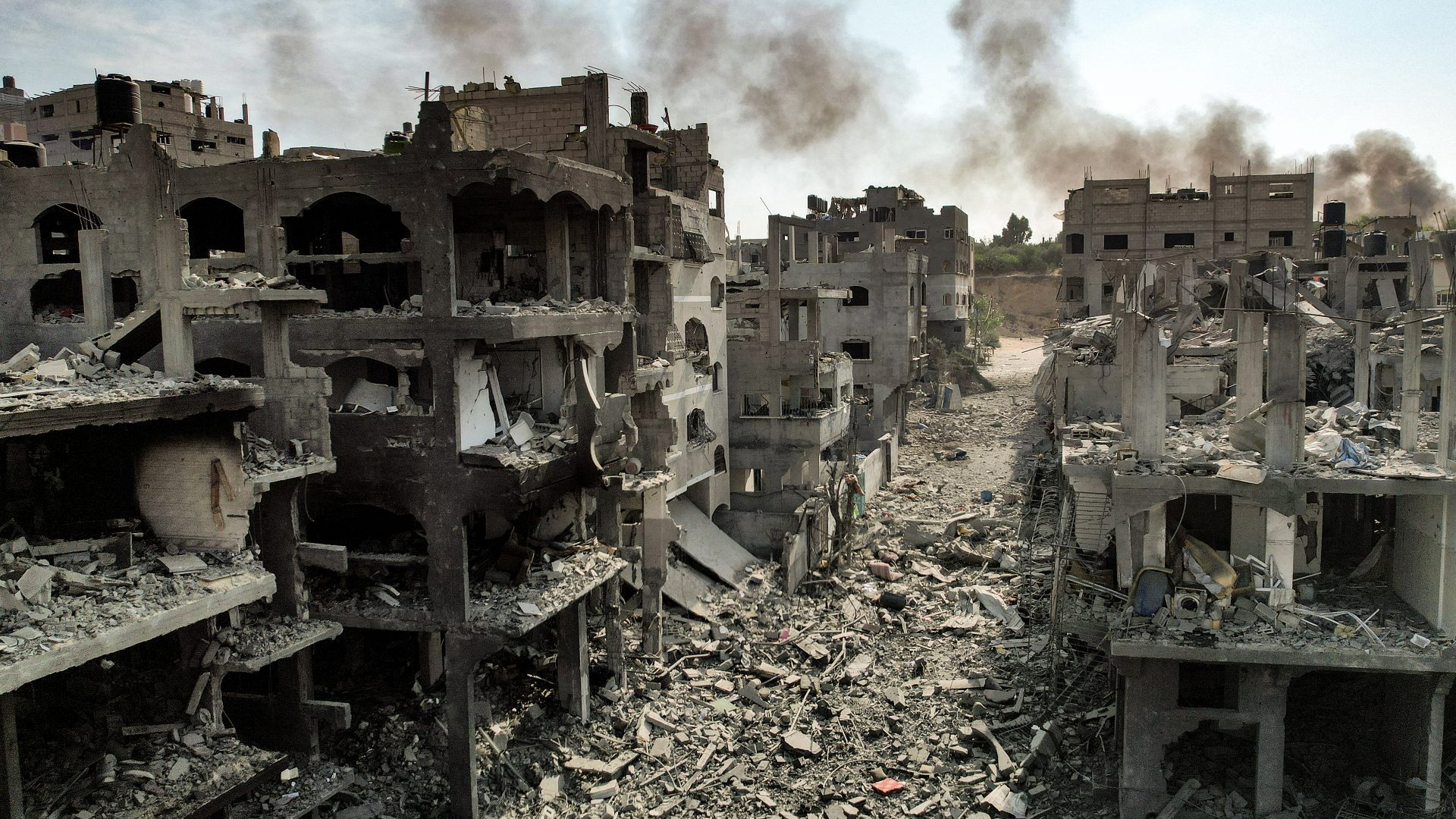“War,” said the 19th-century military theorist Carl von Clausewitz, is “the continuation of state policy by other means”. Surveying the wreckage of Gaza, five months after the October 7 attack, we are entitled to ask what Israel’s “state policy” actually is.
Hamas’s military wing may be severely degraded, but is not defeated. Its political wing is still leading hostage negotiations; still ensconced in a luxury hotel in Qatar. It has used the Palestinian people as human shields, and plunged Gazans into their worst catastrophe since 1948, but retains its social roots among them.
Israel, meanwhile, looks to be out of options. After condemnation of the aid-truck stampede, where Israeli actions allegedly led to the deaths of more than 100 civilians, and all Israel’s major allies determined to prevent a final assault on Rafah, it is hard to see any other outcome than a stalemate, a hostage deal and – as a result – the fall of the Netanyahu government.
It did not have to be like this. Last October, Israel had the world’s moral support. As I wrote here then, it had every right to try to destroy Hamas, and to rescue the hostages, so long as it stuck to the laws of armed conflict.
But it manifestly did not do so. Even if we accept Israel’s own claim, that it has killed 10,000 Hamas fighters alongside 20,000 civilian women and children, there is ample evidence of recklessness in targeting and unjust restrictions on humanitarian aid.
Worse, Netanyahu went into Gaza with no clear plan to stabilise its economy and society, and thus no rational objective other than to either force Egypt to accept 2 million refugees, or to occupy the strip itself.
These rival fantasies – permanent occupation versus ethnic cleansing – continue to haunt the imagination of the Israeli far right. As to Netanyahu’s official plan, it, too, rests on a fantasy. Entitled “The Day After Hamas”, it sees Israel creating a buffer zone, taking control of the whole Gaza-Egypt border and continuing to fight Hamas until it expires completely.
Gaza will be run by “local elements with managerial experience” – not the Palestinian Authority. And Israel will refuse to recognise any Palestinian state created without direct negotiations with itself. It wants veto power over an independent Palestine.
The clue to what’s wrong with Netanyahu’s plan is in its title: there can be no “day after” Hamas until Israel destroys its centre of gravity, which is its support among large sections of the population. Having been there during the 2014 war I know that such support is finite; that in peacetime Hamas only rules because it can dispense money and micromanage people’s lives coercively.
But to destroy Hamas requires replacing it with something that could fulfil these functions more benignly: using aid money for food and housing, as opposed to tunnels and explosives; policing the population to uphold its human rights, not erode them.
This is what the standard textbook of the UK Foreign Office Stabilisation Unit, published in 2019 as a 150-page compendium of hard-earned lessons from Afghanistan and Iraq, would prescribe: think politically, set clear and manageable objectives, express humility, make deals.
Yet Israel, despite its decades-long occupation of the West Bank and frequent incursions into Gaza, appears to possess no such methodology. Decades of untrammelled military power have rendered its political elite incapable of strategic thinking.
Its military options now are to revert to a counter-terror strategy, in which Hamas’s sources of funding and its civilian infrastructure are painstakingly dismantled; or a final push to capture the whole of Gaza’s territory, which will lead to mass civilian death. I hope it will choose the former, not the latter, but until it has an endgame around which a new cabinet could be formed, both are a recipe for massive civilian suffering.
If Israel were fighting a networked insurgency, as the US did against Islamic State, some of the timeless principles of war spelled out by Clausewitz might be circumvented. But Hamas was a government with a standing army.
You do not defeat it until you are prepared to replace it, and since none of Israel’s allies would accept a permanent occupation, that means replacing it with a legally recognised and democratically legitimate government of Palestinians.
As a result, Clausewitz’s famous theory of victory remains relevant: you win by depriving the enemy of the means to fight and the will to fight. Only the creation and recognition of their own state could remove the Palestinian people’s will to fight; yet this is the one thing Netanyahu will not countenance.
We may still get a ceasefire before Ramadan begins. But even if that happens, this war has already taught us something about the modern world: that all strategic ties are loosening.
Not only are Iran and Russia promoting chaos. Chaos pervades relationships within the western alliance: Biden’s inability to rein in Netanyahu; Britain’s powerlessness in the region; the sudden evaporation of the goodwill generated by the Abraham accords; the gestural logic of Netanyahu’s “Day After” plan; even the chaotic outcome of the Rochdale by-election – each is evidence of an emergent disorder in the west.
We know the unipolar world is over; and that a long period of conflict lies ahead. It’s starting to dawn that maybe its most pervasive characteristic will be what’s demonstrated in Gaza: the absence of victory in any sense; the absence of order; the absence even of competent diplomacy towards time-limited ends. Absences where there was once structure. In a word, chaos.




